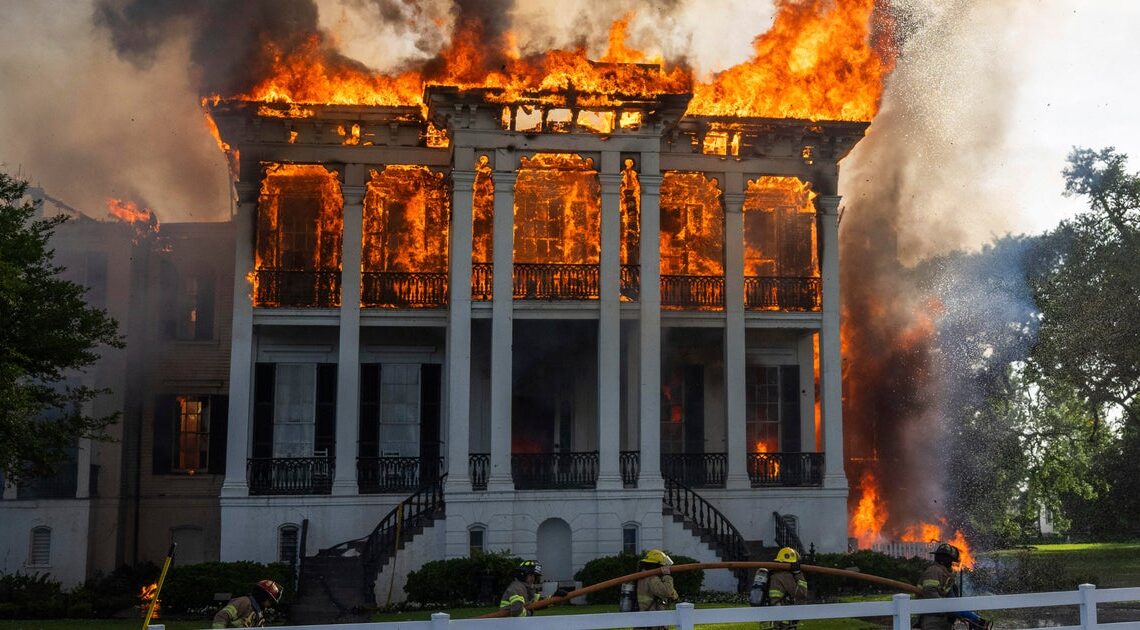
Fire destroys Nottoway Plantation House in Louisiana
16. May 2025
Flames ripped through a massive mansion in Louisiana, destroying much of the historic structure that was used as a plantation house when it was completed in 1859, authorities said.
The fire that engulfed the Nottoway Plantation House on Thursday devastated the building along the Mississippi River between Baton Rouge and New Orleans, Iberville Parish President Chris Daigle said on social media. Nearly a dozen fire departments from surrounding towns battled the blaze, he said. No injuries were reported.
Michael Johnson / AP
Its website describes it as “the South’s largest remaining antebellum mansion.” Daigle called it “a cornerstone of our tourism economy and a site of national significance.”
Nottoway Plantation was built in the 1850s by John Hampden Randolph and sits on a 31-acre property in White Castle, on the edge of the Mississippi River.
The 53,000-square-foot home on a former sugar plantation about 65 miles northwest of New Orleans had a three-story rotunda adorned with giant white columns and hand-carved Italian marble fireplaces, according to a description on its website.
Up until the fire, the mansion was used as a museum and wedding and event venue.
The mansion’s owner, Louisiana attorney Dan Dyess, said in a written statement that the fire had led to a “total loss” after all the time and money he invested in the building.
“We are devastated and heartbroken for this loss,” he said. “This was my dream that has now been dashed.”
Michael Johnson / AP
Photos from local news outlets showed a giant orange wall of fire consuming the upper portion of the rotunda and sending a plume of thick smoke into the sky.
The fire has been contained, and no other properties were harmed, said Maj. Monty Migliacio of the Iberville Parish Sheriff’s Office. Other structures on the grounds have been preserved, parish officials said.
“We are at the beginning phases of the investigation, we don’t know how the fire began and our objective is to determine how it started,” Louisiana Office of State Fire Marshal Public Affairs Director Ken Pastorick said.
In a statement on Facebook, Daigle touched on the structure’s history of racial injustice during a time when enslaved Black people helped build the home and operate the sugar plantation that surrounded it. In 1860, 155 enslaved people were held at the property, according to National Park Service records.
Michael Johnson / AP
“While its early history is undeniably tied to a time of great injustice, over the last several decades it evolved into a place of reflection, education, and dialogue,” Daigle said.
“Since the 1980s, it has welcomed visitors from around the world who came to appreciate its architecture and confront the legacies of its era,” he added. “It stood as both a cautionary monument and a testament to the importance of preserving history — even the painful parts — so that future generations can learn and grow from it.”


